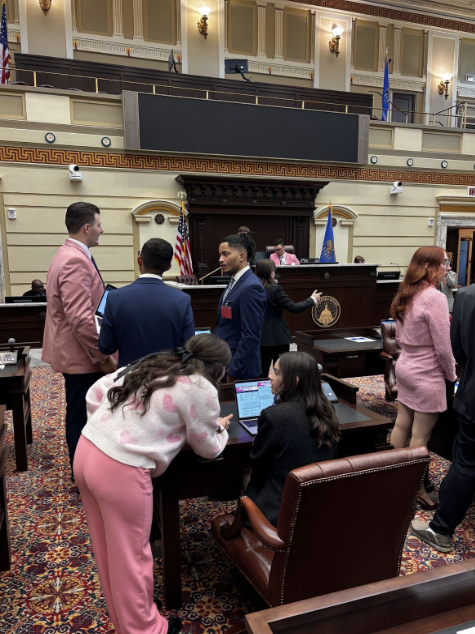By: Journalist Andrea Gooden (ORU)

Senator Coats’ Fair Play Act of 2024 offers Oklahoma a bold, structured approach to conflict resolution by proposing a legal framework for “mutual combat” under law enforcement supervision.
“This bill lets people live freer while ensuring any engagement is orderly and safe,” Sen. Coats said.
The bill allows consenting adults to settle disputes with agreed-upon rules and police oversight, drawing on similar laws from Alaska, Washington and Texas while adding uniquely Oklahoman measures.
During the interview, Sen. Coats provided additional insight into the intent behind this bill and highlighted similar legislation in states like Alaska and Texas, where such measures have proven effective.
Comparative Legislation:
Alaska:
In Alaska, mutual combat falls under the broader framework of self-defense laws. Individuals are justified in using nondeadly force in self-defense when they reasonably believe it is necessary to counter unlawful force, according to Alaska Statute § 11.81.330. The principle of mutual combat is contextualized through cases like State v. Shelley (1998), where legal boundaries for consensual fights are interpreted under disorderly conduct and assault statutes. Although Alaska doesn’t specifically legalize mutual combat, its statutes implicitly recognize scenarios where nondeadly force is consensually and reasonably applied.
Washington State:
Washington law acknowledges mutual combat under specific conditions derived from case law, even though no statute explicitly addresses it. Mutual combat is permissible if both parties consent to the fight; the fight does not disrupt public peace or safety; and serious bodily harm does not result. In Washington, mutual combat is legal under police supervision. Law enforcement may serve as referees, enforcing rules and ensuring safety while intervening to prevent serious injuries or property damage.
Texas Penal Code § 22.06:
Texas allows mutual combat if both participants consent, provided that serious bodily injury is avoided. Consent can be explicit or implied through actions. Texas law also permits the use of consent as a defense to assaultive conduct, especially if the risks align with specific occupations; recognized medical treatments; or scientific experiments conducted by established methods. As in Washington, law enforcement presence is often required to monitor these encounters and ensure compliance.
Other States:
Not all states take the same stance. For instance, Oregon explicitly prohibits mutual combat. Its laws state individuals cannot justify physical force resulting from a consensual fight unless authorized by law.
The “Fair Play” act:
The “Fair Play” act draws on frameworks similar to those in Washington and Texas by requiring law enforcement supervision and prior notification. However, it also introduces unique elements, such as permitting up to 16 participants and mandating a one-week notice before an event. These provisions are designed to prioritize safety and maintain order during such engagements.
What sets Coats’ bill apart is its ambition and detail. Under the “Fair Play” act, Oklahoma’s version of mutual combat would require a one-week notice period and permit up to 16 participants, ensuring both safety and public order.
This meticulous approach shows that while Coats “wears the slacks,” he’s certainly not slacking on the details.
